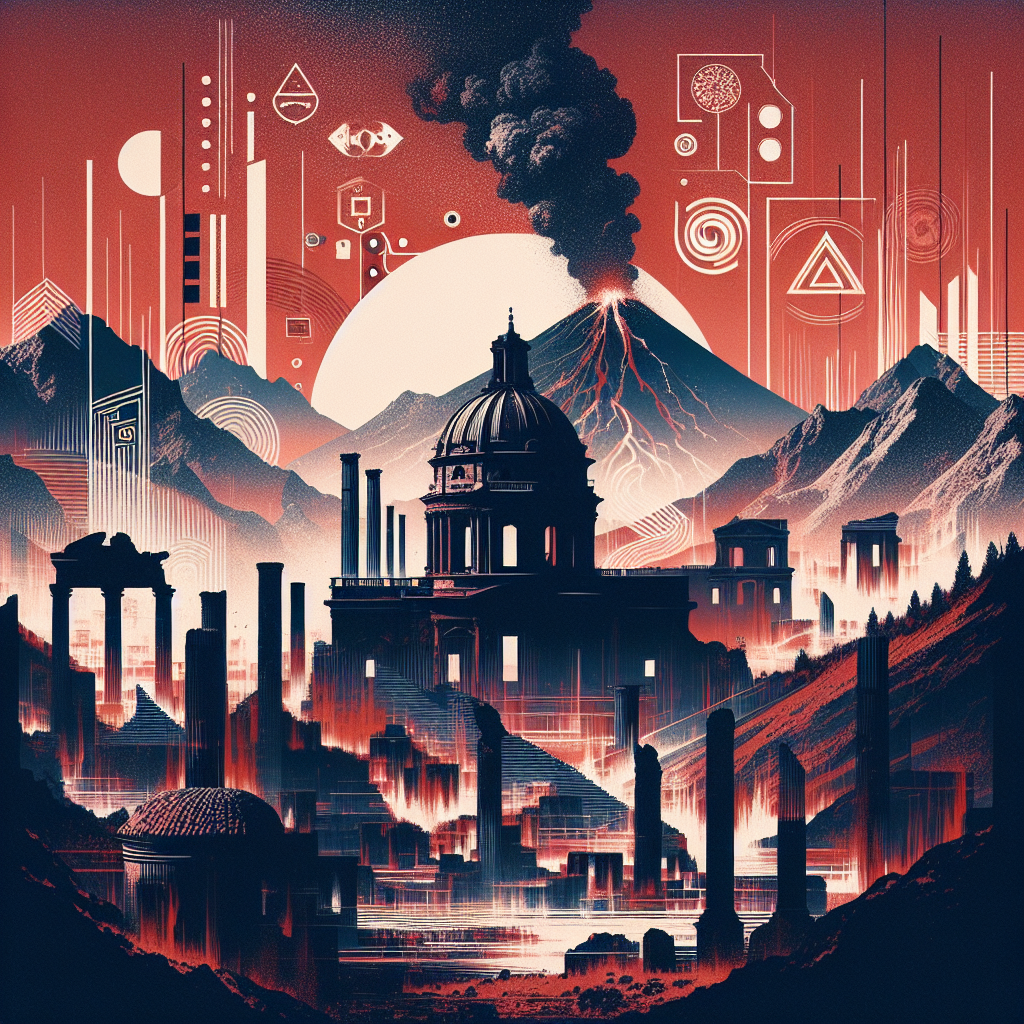Experience the Drama and Intrigue: A Deep Dive into The Last Days of Pompeii by Edward Bulwer Lytton
Edward Bulwer Lytton’s "The Last Days of Pompeii" is a historical novel that immerses readers in the dramatic backdrop of ancient Pompeii, just before the catastrophic eruption of Mount Vesuvius. Published in 1834, the novel is emblematic of Lytton’s literary prowess and his penchant for blending romantic and historical narratives. Known for his diverse body of work, which spanned multiple genres and included science fiction, mystery, and even politics, Lytton’s novels often delve into the human psyche and tackle philosophical questions. "The Last Days of Pompeii" is significant not only for its narrative style and vivid storytelling but also for its impact on the popular imagination regarding historical fiction.
Themes and Character Development
The overarching theme of "The Last Days of Pompeii" is the inevitability of fate and the transient nature of human endeavors. Against the backdrop of impending doom, the novel explores how characters from different walks of life respond to their destinies. The themes of love, power, morality, and redemption resonate throughout the book, providing readers with a philosophical commentary on human nature.
One of the most compelling characters is Glaucus, a noble Athenian who embodies the spirit of idealism and love, serving as the novel’s protagonist. His journey and internal struggles highlight the conflicts between personal desires and moral imperatives. His love interest, Ione, represents beauty and innocence, and her interactions with Glaucus explore the theme of pure, idealized love. Their relationship is developed through poetic dialogues and heartfelt exchanges, adding emotional depth to the narrative.
Arbaces, the Egyptian priest and antagonist, captures the essence of power and corruption. His Machiavellian motives and dark ambitions stand in stark contrast to Glaucus’ purity, and Lytton skillfully uses him to explore themes of manipulability and decadence within society. The tension between Arbaces and Glaucus creates a riveting drama that propels the narrative forward, encapsulating the struggle between good and evil.
Lytton’s meticulous character development is not confined solely to major players. Supporting characters such as Nydia, the blind flower girl, are crafted with such vivid detail that they emerge as integral components of the story’s fabric. Nydia’s unrequited love for Glaucus and her tragic fate evoke empathy while underscoring the theme of sacrifice.
Narrative Techniques and Impact
Lytton employs a variety of narrative techniques to convey the intensity of Pompeii’s last days. His use of vivid imagery and descriptive language brings the ancient city to life, allowing readers to visualize bustling marketplaces, opulent villas, and the looming menace of Vesuvius. The rich descriptions not only establish the setting but also enhance the dramatic tension as the narrative progresses towards the volcanic eruption.
The novel’s structure, woven with foreshadowing and dramatic irony, effectively sustains suspense. Readers, armed with historical hindsight, are acutely aware of the impending disaster, which creates an undercurrent of urgency and poignancy throughout the narrative. Lytton’s deft use of dialogue adds an authentic layer to the characters, enabling a deeper understanding of their motivations and emotions.
In one of the key chapters, Lytton describes a scene at the amphitheater. The spectacle of gladiatorial violence is depicted with stark realism, reflecting both the grandeur and the moral decay of Roman society. This juxtaposition of entertainment and brutality underscores the theme of civilization’s veneer masking its underlying savagery.
Cultural, Social, and Historical Context
"The Last Days of Pompeii" reflects the 19th-century fascination with ancient civilizations and the Romantic movement’s emphasis on emotion and individualism. Lytton’s detailed reconstruction of Pompeii is a testament to the era’s interest in classical antiquity and its influence on Victorian society. By humanizing the inhabitants of Pompeii, Lytton offers readers a means to connect with ancient history on a personal and emotional level.
Moreover, the novel serves as a reflection on the ephemeral nature of human achievements. Pompeii, with its vibrant culture and advanced infrastructure, is abruptly obliterated, reminding readers of the fragility of existence. This theme resonated with Victorian readers living in an age of rapid industrialization and societal change, highlighting their own vulnerabilities in the face of progress.
Legacy and Lasting Influence
"The Last Days of Pompeii" has made an indelible mark on literature and popular culture. Its vivid depiction of a historical event set a precedent for future historical novels and has influenced generations of writers. Films, television adaptations, and even modern-day Pompeii tours owe much to Lytton’s imaginative portrayal of the city. Lytton’s ability to blend historical accuracy with fictional storytelling paved the way for the historical novel as a respected literary form.
Reflective Questions and Contemporary Relevance
Readers are invited to consider what parallels exist between the world of Pompeii and today’s society. In an era marked by global crises and environmental concerns, how do we respond to the inevitability of change or disaster? What can we learn from the diverse responses of Lytton’s characters to their fates?
Moreover, as we engage with this classic novel, we might reflect on the role of historical fiction in shaping our understanding of past civilizations. How do these stories help bridge the gap between history and human experience? As we navigate our own tumultuous times, Lytton’s narrative serves as both a cautionary tale and a mirror, prompting us to ponder our own legacies and the impermanence of our world.
In conclusion, "The Last Days of Pompeii" endures not merely as a tale of historical devastation but as a profound exploration of human resilience and morality. Through his compelling characters and masterful storytelling, Edward Bulwer Lytton invites readers to experience the drama and intrigue of Pompeii, encouraging reflection on the timeless human condition.
Got more questions? Our personalized Book Explorer AI assistant is here to help. Click here to start a conversation!
[Advertisement]
Looking to find deeper meaning in the books you love? Discover how ANY book relates to positive biblical principles with Books and Scripture GPT‘ from BGodInspired.com. Click here to explore the connections that might surprise you!
[Advertisement]

